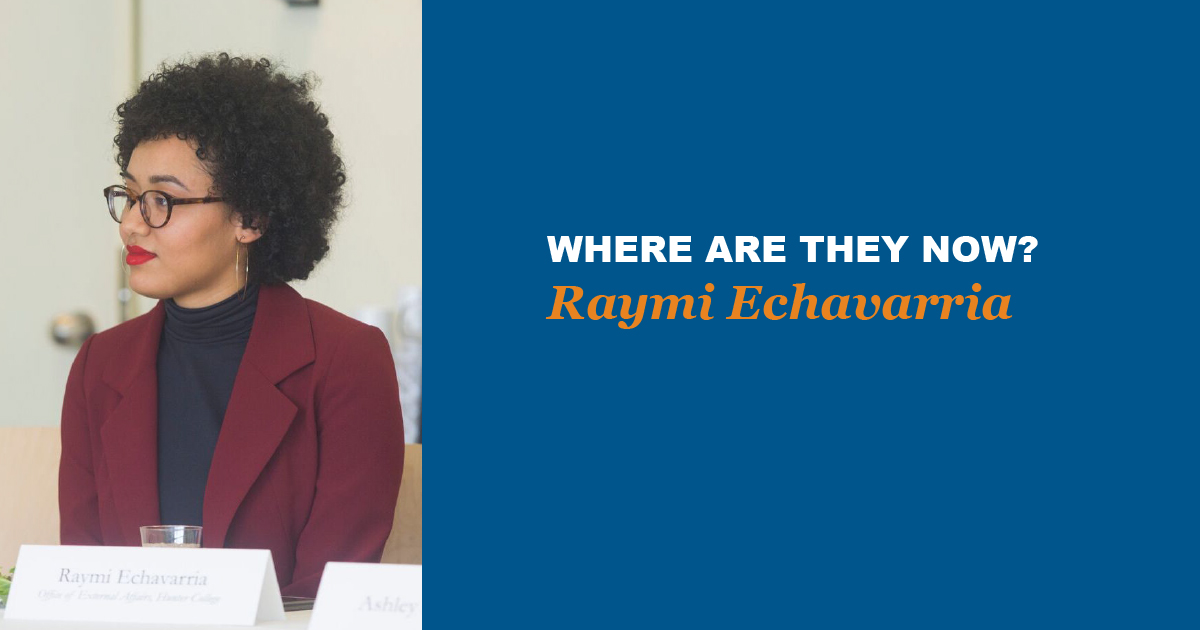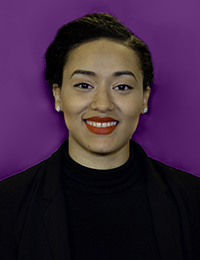A Q&A with Raymi Echavarria, 2016 Undergraduate Intern
Where Are They Now?

This is the sixth in a series of Q&As with past participants in MDRC’s Judith Gueron Minority Scholars Program in which they reflect on their experiences at MDRC and discuss what they’re up to today.
 What is your current position? Describe your work.
What is your current position? Describe your work.
I am the human rights program associate at the Roosevelt House Public Policy Institute at Hunter College and a consultant for the College Bridge for All Program, a City University of New York and NYC Department of Education initiative to help New York City’s high school students with the college matriculation process. In my full-time role as a human rights program associate, I organize public and student programming on a wide range of human rights issues and with various human rights leaders and organizations. I also support student communication and experiential learning opportunities.
I also currently serve on the board of Unlocal, a nonprofit organization that provides direct immigration legal representation, legal consultations, and community education to New York City’s undocumented immigrant communities.
Why did you choose to apply for and accept an undergraduate internship at MDRC? What drew you to the internship?
After spending most of my undergraduate years helping high school students with college matriculation work, I wanted to explore higher education research and policy. The research experiences that I was exposed to at MDRC helped the direct service work that I continued to do in addition to informing my career aspirations.
What types of tasks and projects did you start off with at the beginning of your internship? How did your assignments evolve during your tenure as an intern?
I was tasked with supporting projects in two different policy areas: Postsecondary Education and Health and Barriers to Employment (now called Youth, Criminal Justice, and Employment). During my time as an intern, I helped organize focus groups, fact-checked reports, created project management tools, and recruited participants for the Detroit Promise Path demonstration.
What advice do you have for students who are interested in applying to be an intern at MDRC?
Remember that the motivation behind all of the analytical qualitative and quantitative research work is learning about what makes social policies effective and that this success is best measured by how the lives of participants are impacted. Let your normative ideas be the foundation upon which you build on your work — it is all ultimately in the service of improving our society, and clarity on what that ideal society looks like is pivotal.
Do you have any additional thoughts about your internship experience at MDRC?
The staff at MDRC were incredibly welcoming, and the MDRC Diversity Council members ensured that the summer interns were supported. I loved meeting various professionals working on a multitude of policy areas. As an undergraduate student, it helped me examine and consider careers that were not familiar to me.






